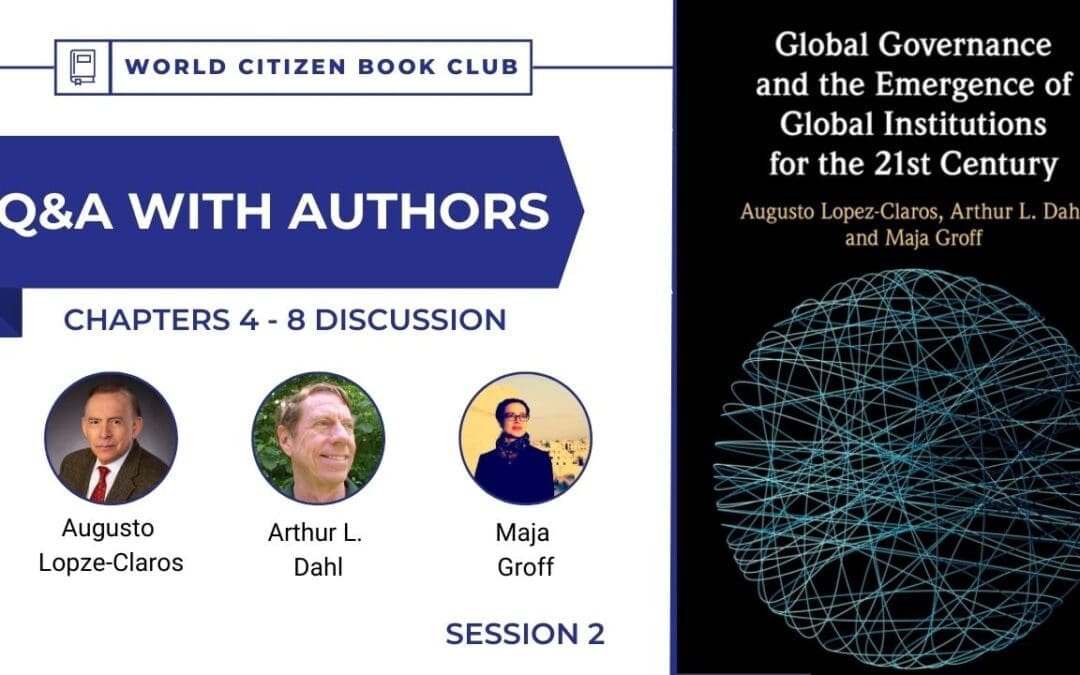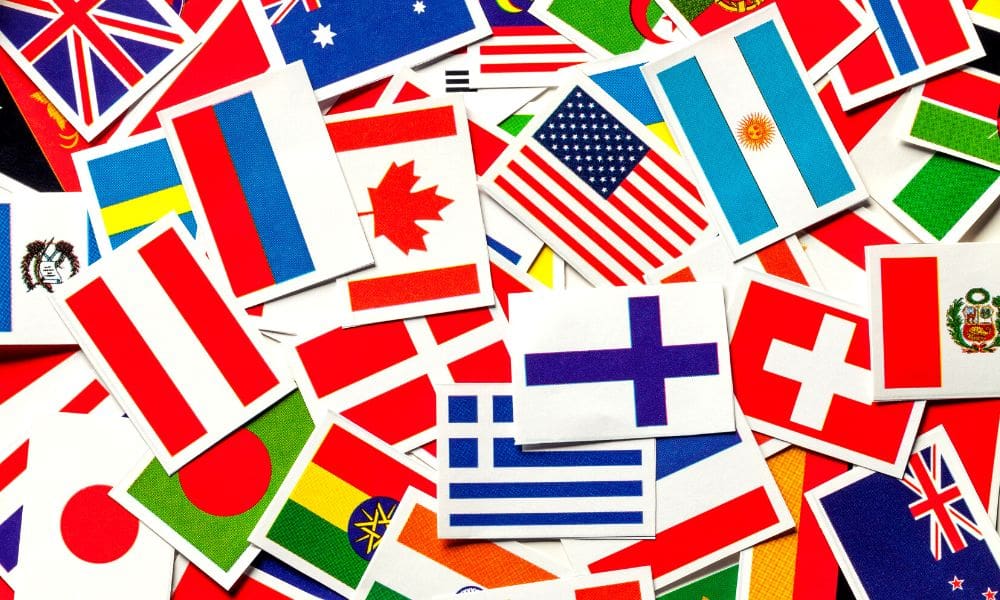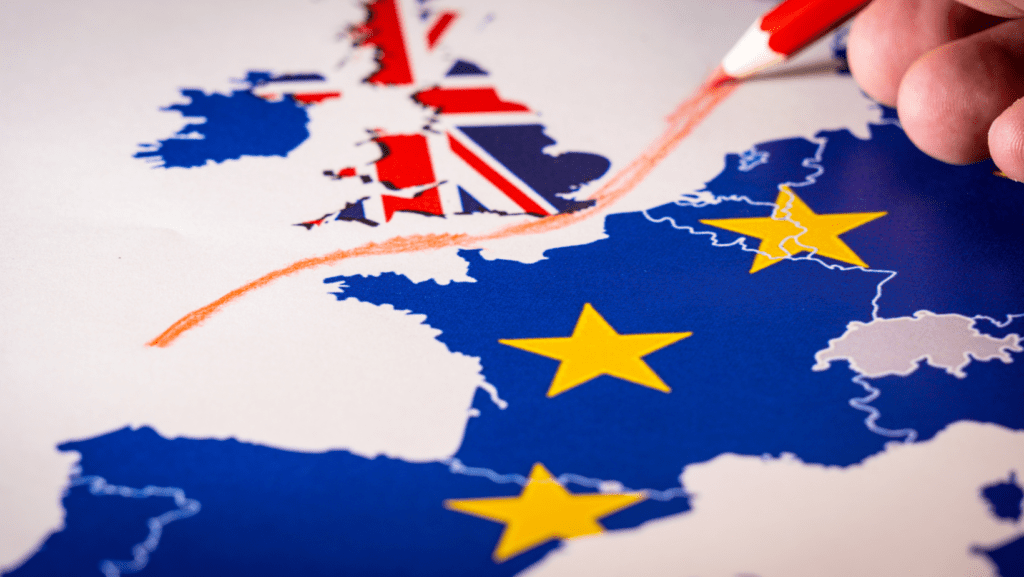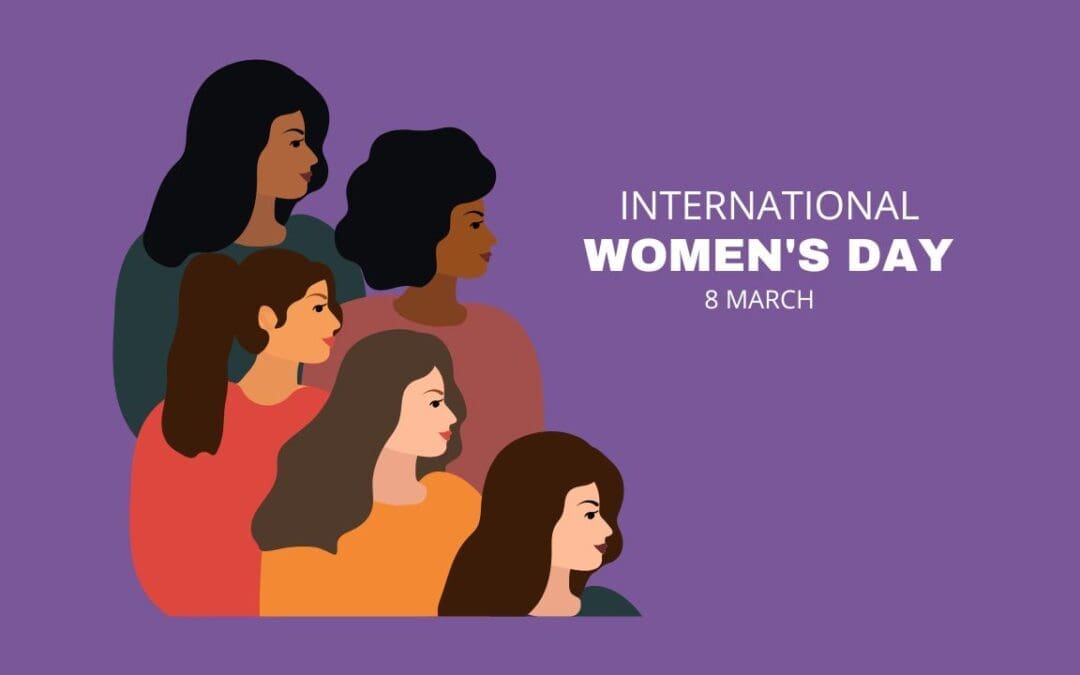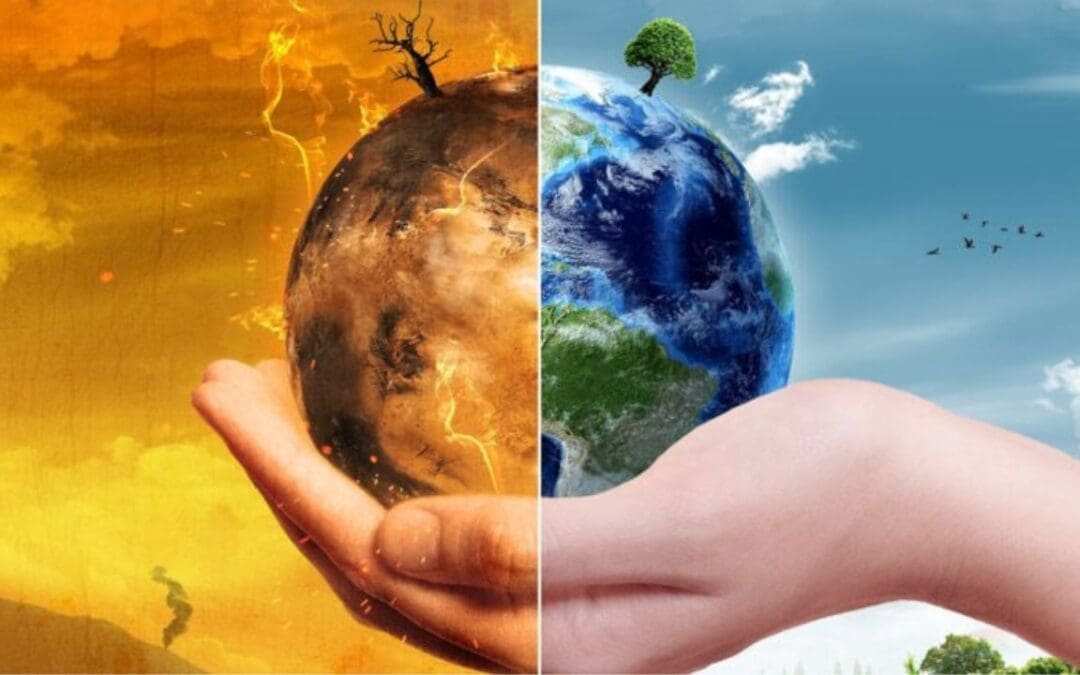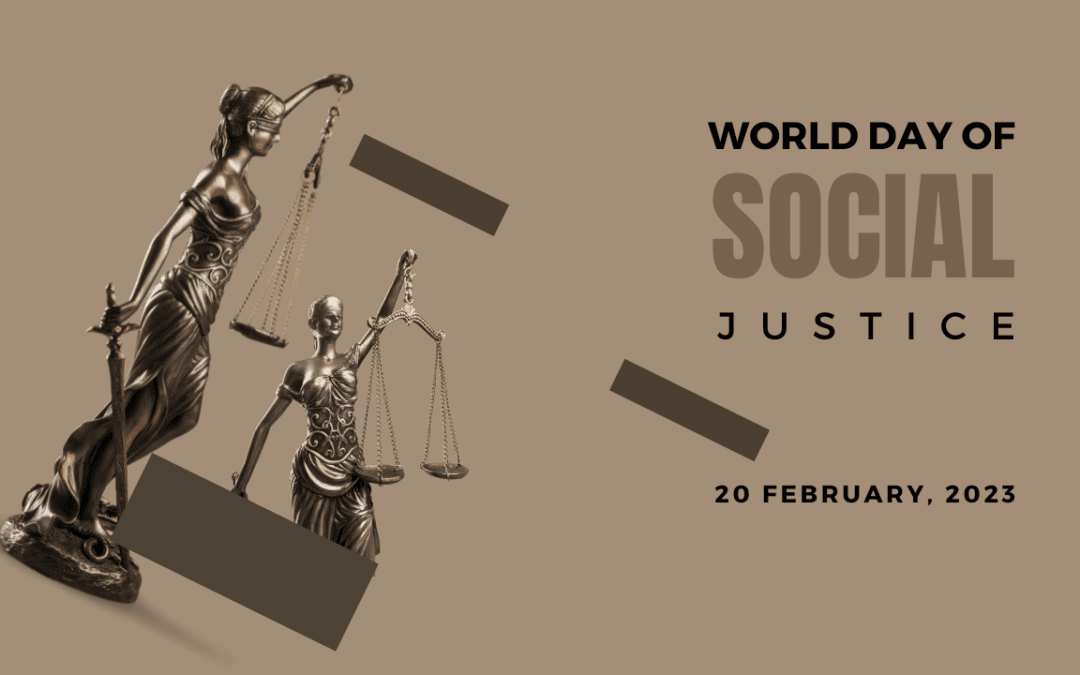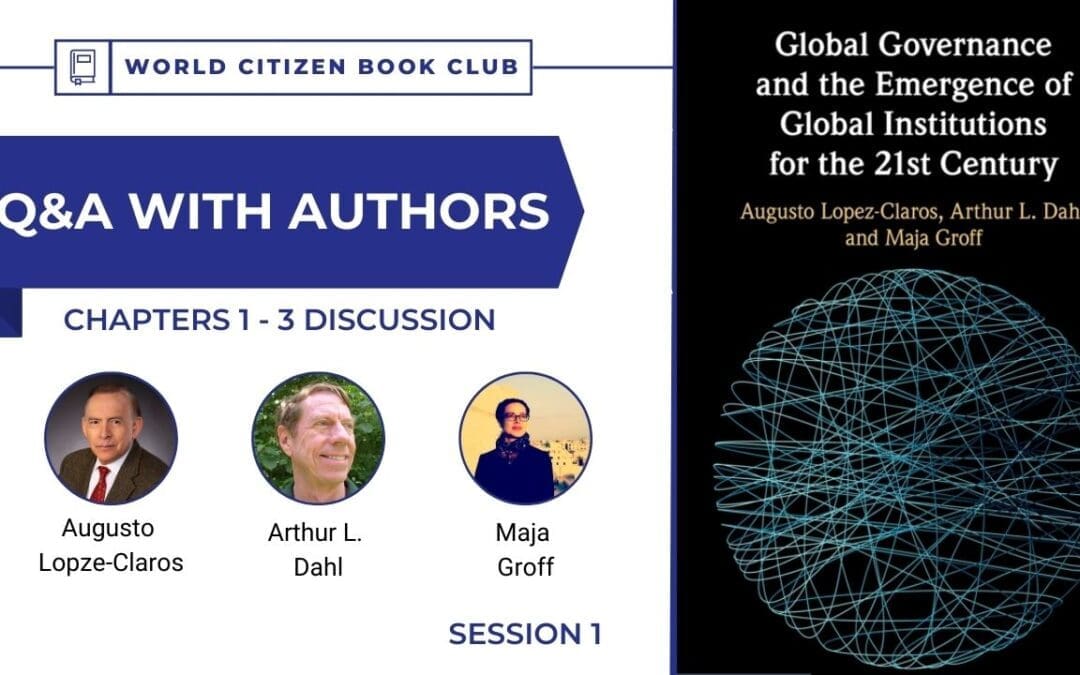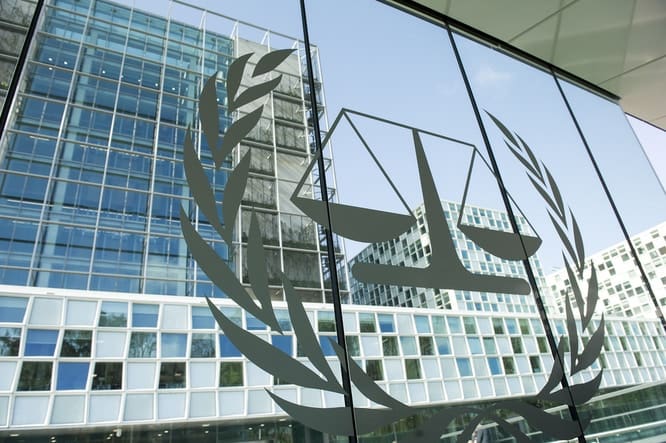
by Citizens for Global Solutions | Mar 11, 2023 | Past Event
Our second session with all three authors, Augusto Lopez-Claros, Arthur Dahl, and Maja Groff, focuses on Part 2: Reforming the Central Institutions of the UN (Chapters 4-8, pages 81-180). They discuss the authors’ proposals to reform the General Assembly and to establish a World Parliamentary Assembly, Advisory Mechanisms, a UN Executive Council, and an International Peace Force.

by Marta Simoncini | Mar 7, 2023 | World Citizen
In 2019, 10 entrepreneurial families from Fiji, France, Germany, Italy, Kenya, Portugal, Romania, and the Swedish Saami Youth Association found common cause when their businesses – largely in agriculture and tourism – were affected by climate change disasters. With the support of scientists and non-governmental organizations, they brought a case to the European Union Court of Justice in which they demanded more commitments from European institutions in reducing greenhouse gas emissions. This group, the People’s Climate Case, became one of the largest global actions related to climate change. Despite its strategic importance, the case ended with the Court of justice declaring on appeal that it was inadmissible because the plaintiffs were not eligible for direct access to the court.
In an increasingly globalized world, many people have acquired multiple legal identities that are formed “beyond the state.” These individuals have gained a form of administrative citizenship of the world – not a passport that is derived from belonging to a national community but that is the fruit of legal globalization. More cases like these will pose new legal challenges.
The 1998 case brought to the World Trade Organization (WTO) by India, Malaysia, Pakistan and Thailand on shrimp fishing is another example. The fisherman’s activities were severely affected by the U.S. embargo on imports of shrimp caught using methods dangerous to sea turtles. The U.S. embargo aimed to protect endangered sea turtles from becoming trapped in certain types of fishing nets. To protect fishermen and traditional fisheries, Asian states said the embargo had violated international trade rules. While the WTO recognized the legitimacy of restrictive measures to protect the environment, it found the U.S. measure unlawful because it was adopted in the absence of discussion with the states concerned and, thus, in violation of the principles of due process.
Although different, these stories demonstrate how citizens are impacted by decisions made by global or supranational authorities. They also highlight how the exclusive condition of citizenship is no longer just realized at the state level. The interdependence resulting from economic globalization is governed through orders that are formed across national borders.
Although states remain central actors in international society, different forms of sovereignty are emerging in what Sabino Cassese has called a global public arena, in which public and private actors participate in different ways in the creation and implementation of norms.
Recognizing global rights and obligations promises a cosmopolitan ideal of universal rights outside the nation-state framework, but which proceeds from the inalienable contents of national citizenship – such as the right to vote and the duty to pay taxes. In a globalized world, this trend has arisen from conflict mediation outcomes between global actors. There are three main interpreters of these conflicts: the courts; administrative bodies; and political institutions. It is useful to briefly highlight different aspects of their activities to better understand the nature of the current processes.
Global Citizenship and Global Justice: The Role of the Courts
Courts play a key role in the process of asserting rights, but do not always succeed in meeting the demand for global justice.
Going back to the People’s Climate Case, the discrepancy between the demand for justice and European procedural constraints generated an obvious and painful paradox: the more generalized the prejudicial effects of the European Union act were, the more access to the courts was limited. In the words of the entrepreneurs involved in the case, “the more serious the harm and the higher the number of victims, the less judicial protection is guaranteed.”
The legal definition of who and under what conditions those persons can access the courts creates a bottleneck in the quest for justice. What happens, then, to all those situations that are not jurisdictionally protectable, yet embody interests of global significance? When the courts are not equipped to meet demands for justice, who responds to these demands in a global setting that does not have an aggregate political system?
Global Citizenship and Soft Law: The Role of Administrative Bodies
Public administrations are another crucial interlocutor in conflict mediation. Through informal cooperation between jurisdictions – and setting up standards, guidelines, and best practices – a so-called ‘soft law’ emerges, although without binding legal force. The guidelines of the European Securities and Financial Instruments and Markets Authority are one example. In theory, they ensure that advice on investment products is appropriate to the risk profile of clients. National authorities and firms can only deviate from these guidelines by justifying their dissent. In practice, not conforming to the guidelines inevitably means exposing oneself to an eventual international process of ‘naming and shaming.’
‘Soft law’ thus functions as a kind of glue. While not legally binding, it can become so in practice. But in the face of non-traditional, coercive techniques, how can the certainty of individual rights and obligations be ensured? Or how can global citizens recognize and defend themselves when administrations abuse their powers or act in violation of the law?
The quest for soft law legitimacy comes through sharing rules of conduct. Furthermore, a bottom-up process and transparency promotes consensus. But who influences these decision-making processes and who is represented? Selecting globally relevant interests is not a neutral, or just a legal, process. It is also a social and political process of discernment and mediation between diverse interests.
Global Citizenship and the Nation State: The Role of Political Institutions
Finally, politics plays a central role in mediating conflicts. Gaps between multiple legal identities create tensions between those benefitting from taking a global or regional perspective and those who hold conflicting rights and interests protected by national citizenship. Policy can either help to mitigate, or exacerbate, these conflicts. National leaders have exploited these contradictions to construct ‘us vs. them’ identities.
In the last decade these tensions strongly characterized European citizenship. The ideal of a cultural European identity has, for example, been challenged by the problems that have emerged when people who are not actively working – such as students, the unemployed, and retirees – request to live in another European country under conditions of non-discrimination compared to nationals. The latter wish to limit the ‘free riding’ phenomenon of access to public resources, at least if those moving are not actively contributing to the economic life of the host country.
The European Court of Justice, at first a proponent of European citizenship as the “fundamental status of citizens of member states,” has since aimed to remove the risks of this ‘welfare tourism.’ However, this development undermines the right to migrate to realize a better future and European citizenship has lost much of its potential in promoting social mobility.
National leaders have exploited these contradictions to construct ‘us vs. them’ identities.
The reduction of European immigration was former U.K. Prime Minister David Cameron’s rationale for the renegotiation of the British participation in the European Union as well as central to the referendum campaign in favour of leaving it.
Conclusion
A more useful approach may be to look beyond political propaganda to the existence of multiple legal identities. How can such identities be reconciled so that uneven norms do not contribute to dramatically exacerbating latent social conflicts? The answers may come from a more cosmopolitan approach based on the principles of tolerance and dialogue.
There are many knots to unravel to make the globalized world a space for exploring multiple identities. Our future depends on understanding these challenges in their complexity and seeking adequate solutions.

by Lawrence Wittner | Mar 7, 2023 | Global Cooperation, World Federation
In the conflict-ridden realm of international relations, certain terms are particularly useful, and one of them is “Red Lines.” Derived from the concept of a “line in the sand,” first employed in antiquity, the term “Red Lines” appears to have emerged in the 1970s to denote what one nation regards as unacceptable from other nations. In short, it is an implicit threat.
Russian Red Lines
Vladimir Putin, self-anointed restorer of the Russian empire, has tossed about the term repeatedly in recent years. “I hope nobody will get it into their heads to cross Russia’s so-called red line,” he warned in April 2021. “Where it will be drawn, we will decide ourselves in each specific case.” These red lines, although addressing a variety of issues, have been proclaimed frequently. At the end of that November, Putin announced that Russia would take action if NATO crossed its “red lines” on Ukraine, saying that the deployment of offensive missile capabilities on Ukrainian soil would serve as a trigger. In mid-December, as Russian military forces massed within striking distance of Ukraine, the Russian foreign ministry demanded that NATO not only rule out any further expansion, but remove any troops or weapons from NATO members Poland, Estonia, Latvia, Lithuania, and the Balkan countries and obtain Russian permission before holding any military drills in Eastern Europe, the Caucasus, or Central Asia.
Finally, on February 24, 2022, Putin―ignoring a U.S. offer to negotiate some of these items―sent a massive Russian military force pouring into Ukraine in a full-scale invasion. “This is the red line that I talked about multiple times,” he said, and “they have crossed it.” Most nations were not impressed by this justification, for the Russian invasion and subsequent annexation of large portions of Ukraine were clear violations of international law and, as such, were condemned by the United Nations General Assembly and the International Court of Justice.
Of course, Putin’s red lines and international aggression, though particularly blatant, are hardly the only features of this kind that have appeared throughout Russian or world history.
American and Chinese Red Lines
The United States has a lengthy record in this regard. As Professor Matthew Waxman of Columbia Law School has written, the Monroe Doctrine of 1823 involved “drawing a red line―with an implicit war threat” against “any European efforts to colonize or reassert control in the Western Hemisphere.” Given the relative weakness of the United States at the time, the U.S. government did not attempt to enforce President James Monroe’s grandiose pronouncement. But, with the emergence of the United States as a great power, its government expanded the Monroe Doctrine to justify frequent U.S. meddling in hemispheric affairs, including conquering and annexing Latin American territory. Even in recent decades, when U.S. annexations have become a relic of the past, the U.S. government has engaged in military intervention in other lands, especially in the Caribbean and Central America, but also in Asia and the Middle East (where President George W. Bush drew what he called “a line in the sand”).
In recent years, as China’s military and economic power have grown, its government, too, has begun emphasizing its red lines. Meeting with U.S. President Joseph Biden in mid-November 2022, Chinese President Xi Jinping declared that Taiwan was the “first red line that must not be crossed.” Xi did not mention the tension-fraught situation in the South China Sea, where China had set up military fortifications on islands claimed by its neighbors, including Vietnam and the Philippines. But here, as well, China had red lines―leading to the current dangerous confrontations between U.S. and Chinese warships in the region. Sharply rejecting a 2016 ruling by the Permanent Court of Arbitration at the Hague that denied China’s control of the area, the Chinese government continued to build up fortifications on the disputed islands. Furthermore, Chinese troops have continued for more than six decades to engage in violent military clashes with Indian troops along the disputed border, in the Himalayan region, between their two nations.
The Dangers of Red Lines Drawn by Individual Nations
Although it could be argued that red lines are only an innocent expression of what a nation considers unacceptable in world affairs, it’s worth noting that they are employed especially by major nations. The “great powers,” after all, have the military strength to give their warnings some credibility. Conversely, smaller, weaker nations do not usually bother to issue such pronouncements, as their warnings―and even their interests―are rarely taken as seriously. For this reason, the issuance of red lines usually boils down to a matter of what nation has the power to compel other nations to accept its demands.
Consequently, red lines lead inevitably to spheres of influence that other nations are supposed to respect―including a U.S. sphere in Latin America, a Russian sphere in Europe, and a Chinese sphere in Asia. Naturally, people and nations living in the shadow of these major powers are not enthusiastic about this arrangement, which explains why many Latin Americans want the Yankees to go home, many Europeans fear Russian hegemony, and many Asians are wary of the rise of China.
Another problem with the issuance of red lines is their tendency to inspire international conflict and war. Given their roots in the professed interests of a single nation, they do not necessarily coincide with the interests of other nations. In this competitive situation, conflict is almost inevitable. Where, in these circumstances, is there a place for collective action to fashion a common agreement―one recognizing the fundamental interests of all nations?
A World Federalist Alternative
Rather than a world of red lines proclaimed by a few powerful nations, what humanity needs is a strengthened United Nations―a global federation of nations in which competing national priorities are reconciled and enforced through agreements, treaties, and international law.
Setting red lines for the world is too important to be left to individual, self-interested countries. They should be set―and respected―by all.

by Citizens for Global Solutions | Mar 6, 2023 | Organizational Statement
Empowering Women, Transforming Lives: The Power of Technology on International Women’s Day
Washington, DC- On March 8, Citizens for Global Solutions (CGS) joins the United Nations and civil society throughout the world in celebrating International Women’s Day, which is dedicated to celebrating the social, economic, cultural, and political achievements of women around the world. This year’s focus is on “women’s full and effective participation and decision-making in public life, as well as the elimination of violence, for achieving gender equality and the empowerment of all women and girls.”
The theme for International Women’s Day on March 8, 2023 has been announced as “DigitALL: Innovation and technology for gender equality.” This year’s theme is aligned with the focus of the upcoming 67th Session of the Commission on the Status of Women (CSW-67): “DigitALL: Innovation and technology for gender equality.” The theme highlights the importance of leveraging technology and innovation to promote gender equality and empower women and girls.
The benefits of including women and other marginalized groups in technology are numerous. Not only does promoting social equity vis-à-vis technology result in more creative solutions, but it also can drive innovation that meets women’s needs and promotes gender equality. Conversely, the exclusion of women from technology comes with significant costs. According to the UN Women’s Gender Snapshot 2022 report, women’s exclusion from the digital world has caused a loss of $1 trillion from the GDP of low and middle-income countries in the last decade, and this loss is projected to increase to $1.5 trillion by 2025 without action. Reversing this trend will require tackling the problem of online violence, which a recent study revealed 38% of women in 51 countries have personally experienced.
We at Citizens for Global Solutions and Young World Federalists firmly believe that reversing these trends can be best achieved through strengthening international laws to protect women and girls against online violence. Specific steps that can be taken include urging the UN General Assembly to continually push for universal compliance with the Universal Declaration of Human Rights– of which gender equality is a significant part. Furthermore, the UN General Assembly could convene to revise the Convention on the Elimination of All Forms of Discrimination against Women (CEDAW)- informally known as the “International Bill of Rights” for women- by adding a provision addressing gender exclusion and discrimination in the technological sphere. Finally, UN member states could collectively agree to empower the Commission on the Status of Women by strengthening its relationship with the more representative UN General Assembly- not just ECOSOC, whose members don’t fully reflect UN member states. The Commission could also convene on a more regular basis and address the lack of substantial provisions regarding technology in the Beijing Platform for Action, a global blueprint for gender equality.
In commemoration of International Women’s Day, we look forward to continue working with civil society worldwide to strengthen grassroots and international efforts to safeguard gender equality both within and outside of the UN system.
About Citizens for Global Solutions & Young World Federalists
Citizens for Global Solutions (CGS) is a non-governmental, non-profit, non-partisan membership-based organization that for more than 75 years has brought together a diverse collective of individuals and organizations with a common goal of a unified world predicated upon peace, human rights, and the rule of law. From championing ratification of the UN Charter upon our establishment in 1947 to supporting creation of the International Criminal Court (ICC) 25 years ago to advocating for global instruments to confront today’s enduring challenges of war and climate degradation, CGS recognizes that true progress is a generational enterprise. We invite like-minded individuals and organizations to join us in this mission.
The Young World Federalists are a global movement fighting to give humanity a voice. We envision a sustainable, just, and peaceful world through a democratic world federation. A world run by humanity, for humanity, providing equal opportunity to all on a thriving planet.
Contact: Donna Park dpark@globalsolutions.org

by Citizens for Global Solutions | Mar 1, 2023 | Mondial Journal

by Citizens for Global Solutions | Feb 22, 2023 | Climate Justice
When it comes to the climate crisis, we are running out of time.
In 1994, the UN Framework Convention on Climate Change established the Conference of the Parties (COP) to encourage UN member states to meet annually to discuss scientific data and technological advances related to climate change and implement international environmental agreements. Despite the global interest in addressing climate change, the next 29 years would be characterized by lukewarm international efforts to divert a climate catastrophe. In line with this record, the recent COP27 hosted by Egypt failed to secure cooperation on key issues and induce the necessary commitments to reduce greenhouse gas emissions.
One of the earliest international environmental treaties was the Montreal Protocol of 1987. The Montreal Protocol was a success because all 197 UN member states ratified the treaty and it effectively coordinated international efforts to eradicate about 99 percent of ozone-depleting substances (ODS). One major reason behind its success was that it established a “Multilateral Fund” to provide financial backing to countries, especially those who were not meeting their goals. It also prioritized the concept of “common but differentiated responsibilities” by giving developing countries more time to eliminate their production of ODS.
The Kyoto Protocol, which entered into force in 2005, was the first “legally binding” climate treaty that aimed to reduce greenhouse gas emissions. However, it was not successful because the United States never ratified it and China was not required to commit to stringent emissions reduction targets. As this treaty required real economic sacrifices from industrialized countries, it was unable to effectively coordinate international efforts.
The most comprehensive environmental treaty to date was the Paris Agreement of 2015. The Paris Accords required all UN member states to commit to containing average global temperature increases to below 1.5°C above pre-industrial temperatures through setting nationally determined contributions (NDCs). However, this unenforceable agreement was vulnerable to the vicissitudes of domestic politics that led countries to renege on their climate commitments or abandon the treaty altogether, as the United States did under President Donald Trump. Consequently, most climate change experts say that countries’ emissions reduction plans are not sufficient and will not be executed quickly enough to contain temperature increases to 1.5°C.
What lies behind the failure of international climate treaties to secure meaningful action?
One factor is the disagreement between industrialized and developing nations over which should bear most of the burden for reducing greenhouse gas emissions. Wealthy countries like the United States and Britain have contributed the most to cumulative emissions by normalizing environmentally unsustainable overconsumption. Beginning with the Industrial Revolutions, emissions stemming from the manufacturing of goods in European countries, supplied with raw materials from their colonies in Africa, South America, and Asia, skyrocketed. Industrializing countries like China and formerly colonized nations like India argue that, given the economic wealth and technological advancements acquired by others through industrialization and colonization, the wealthiest countries are the best equipped financially and technologically to lead efforts to address the climate crisis. They insist that demands to cut back on their own emissions are unreasonable, given their minor role in causing the current crisis, and that reducing their emissions will temporarily stifle the economic growth that wealthier countries have enjoyed.
Furthermore, the lack of global institutions that enact, interpret, and enforce international environmental laws and treaties seriously hinders coordinated international action. This “global governance deficit” lies at the root of international environmental treaties’ inability to catalyze collective action and hold countries to their climate commitments. A world order based on absolute national sovereignty therefore sacrifices a sustainable world future at the altar of national sovereignty and national political considerations.
To address these challenges, the world urgently needs international legal action that goes beyond the nation-state status quo. The UN General Assembly could be reformed to pass legally binding and enforceable resolutions through a voting process that also takes into account factors like population. The General Assembly could then pass binding resolutions requiring industrialized and high emitting countries like the United States and China to spearhead emissions reduction efforts and establish ecocide law to make environmental destruction an international criminal act, prosecuted by the International Criminal Court. Building an enforcement mechanism into international environmental treaties would mitigate our current climate crisis.
Promoting meaningful international climate action may also require creating new global governance institutions, such as an International Court for the Environment. Experts have proposed a “Climate Club” that would establish a single international target carbon price and sanction noncompliant countries and countries that do not participate.
In today’s warming world, the stakes have never been higher. To prevent an irreversible chain reaction of climate catastrophe, we must marshal our scientific acumen, political will, and technological prowess on a global scale to contain global temperature rise. Doing so will require addressing the politics of climate change policy within and among countries and the current ineffective system of global environmental governance, including its unenforceable international treaties.
The path forward will not be easy, for it will require unprecedented grassroots mobilization and political courage. But the task isn’t impossible. The far-sighted individuals who gathered in San Francisco to create the United Nations knew the difficulties that awaited them, but never surrendered to pessimism, hopelessness, or cowardice. They appreciated that the survival of humankind largely depended on their determination to forge a new path forward for international governance. We must do the same now with respect to the climate crisis, embracing effective global environmental governance and cooperation. The survival of 8 billion humans and all other species on our beloved Earth hinges on our success.

by Citizens for Global Solutions | Feb 20, 2023 | Organizational Statement
Social Justice: The Foundation of Building a Sustainable Future
Washington, DC– On February 20, Citizens for Global Solutions (CGS) joins the United Nations and civil society throughout the world in celebrating the World Day of Social Justice. In November of 2007, the United Nations General Assembly passed a resolution declaring February 20 to be the World Day of Social Justice in recognition of the vital role that social development and social justice play in ensuring a more peaceful and secure world. The decision to establish a World Day of Social Justice built off of the International Labour Organization’s efforts to promote fair labor standards rooted in a respect for human rights and socially inclusive globalization, a priority that is apparent in the ILO’s Declaration on Fundamental Principles and Rights at Work of 1998.
Social justice is a key element of the “Our Common Agenda” report published by UN Secretary-General Guterres. Specifically, “Our Common Agenda” prioritizes solidarity as a guiding principle as we build a more just and peaceful world. UN General Assembly Resolution 57/213- “Promotion of a Democratic and Equitable International Order”- defines solidarity as “the virtue of which global challenges must be managed in a way that distributes the costs and burdens fairly.” To ensure an equitable and just globalization, those who benefit the most from globalization must actively support those who do not enjoy the benefits of globalization and whose livelihoods are threatened by global challenges like climate change.
“Our Common Agenda” identifies intergenerational unity as a key aspect of solidarity; we must center the interests and priorities of young people as we build a more inclusive and just world for all. Furthermore, other marginalized groups including women, indigenous communities, and the poor must play a key role in fostering global dialogue and spearheading international efforts to address shared global challenges. These critical considerations are also strongly connected to the 2030 Sustainable Development Goals (SDGs), especially Goal #5 (gender equality) and Goal #10 (reducing inequality).
We at Citizens for Global Solutions and Young World Federalists firmly believe that achieving a socially just and equitable globalization can be best achieved through strengthening global governance. We strongly support the Campaign for a United Nations Parliamentary Assembly, which seeks to create a popularly elected United Nations Parliamentary Assembly (UNPA). By empowering the citizens of the world to actively participate in global decision making, the UNPA could enhance gender equity and social and economic inclusion in the UN system. Eventually, such a Parliamentary Assembly could collaborate with the UN General Assembly to pass an internationally binding resolution ensuring universal commitment to the Universal Declaration of Human Rights (UDHR). Furthermore, to ensure intergenerational equity, we strongly support UN actions like the “Special Envoy for Future Generations” and the Declaration on Future Generations. We are also committed to civil society-led initiatives like the upcoming Global Futures Forum in March of 2023 in advance of the UN Summit of the Future, in the hope that consultations like these will enhance the participation of youth, women, and civil society groups from the Global South in global governance.
As “Our Common Agenda” succinctly states, “no one is safe until everyone is safe.” Effectively addressing the defining global challenges of today and fostering a more peaceful society will require the active input of all of humankind. Let us work together to realize our collective vision for a more inclusive, equitable, and socially just world.
About Citizens for Global Solutions & Young World Federalists
Citizens for Global Solutions (CGS) is a non-governmental, non-profit, non-partisan membership-based organization that for more than 75 years has brought together a diverse collective of individuals and organizations with a common goal of a unified world predicated upon peace, human rights, and the rule of law. From championing ratification of the UN Charter upon our establishment in 1947 to supporting creation of the International Criminal Court (ICC) 25 years ago to advocating for global instruments to confront today’s enduring challenges of war and climate degradation, CGS recognizes that true progress is a generational enterprise. We invite like-minded individuals and organizations to join us in this mission.
The Young World Federalists are a global movement fighting to give humanity a voice. We envision a sustainable, just, and peaceful world through a democratic world federation. A world run by humanity, for humanity, providing equal opportunity to all on a thriving planet.
Contact:
Donna Park dpark@globalsolutions.org

by David Gallup | Feb 13, 2023 | World Citizen
Classified documents, top secret files, spy balloons, clandestine surveillance. What kind of world are we living in where we hide information about and from each other, spying to get the upper hand? Why do leaders and legislators feel compelled to keep government secrets from the public?
In the current political system of independent, sovereign states, national governments seek to exact a competitive edge over perceived rivals by hiding information, spying, and governing secretively. Day-to-day governance becomes a zero-sum game. Governmental success comes at the expense of human interdependence, turning our fellow humans into foes rather than friends.
What are the costs of keeping secrets?
Nation-state secrets and spying come with economic, environmental, political, and social costs.
Nearly all countries have their own spies, covert agencies, and departments of “defense,” costing billions of dollars to conduct “intelligence” operations and keep secrets. Furthermore, national governments feel compelled to spend countless billions on embassies, consulates, border walls, and border guards for “national security.” Consider the two trillion dollars total that national governments spend on preparing for and waging wars every year.
Weapons manufacturers, military contractors, government officials, and wealthy shareholders reap the profit from producing and selling tools of deceit and destruction. Meanwhile, a billion people are starving, and millions must flee their homes to survive. Moreover, war preparation and clandestine operations are some of the most devastating despoilers of the environment.
To outmaneuver each other, national governments steadfastly control resources and data, refusing to share information with anyone they consider an outsider. Keeping secrets hampers leaders from governing effectively, causing them to focus on their nation instead of humanity’s survival.
State secrets for “national security” and “public order” allow governments to act extra-judicially and to violate human rights with impunity. Hiding information leads to public mistrust in government. When secrets take precedence over transparency, governing decisions are made without analysis, oversight, or consent. The public is precluded from participating in decision making and mistrust of government grows.
Secrets and the rhetoric of divisiveness – the “us versus them” approach – also take a psychological toll. Overzealous national pride turns our neighbors into enemies and ignites a mindset of fear, distrust, jealousy, and anger. We are constantly looking behind our backs, rather than looking forward.
What are the benefits of humans sharing information instead of privileging secrets?
Human and natural resources would be better spent on environmental, scientific, and technological advancements than on secrets, spying, and information suppression.
Governments, as representatives of the world’s people, could focus on information sharing and unifying humanity. Humans could work together to overcome the divisions that hold us back, rather than maintain nearly 200 separate national departments of defense, and science research, environmental, and intelligence agencies all seeking similar data and advancements. Access to more data would enhance governmental decision-making and lead to quicker scientific, health, and technological progress.
By encouraging the open exchange of information, we would be better equipped to improve understanding among diverse cultures and governing styles, to interact more peaceably and to share resources more equitably. With transparency and accountability as top priorities, we could build a framework of world security.
Resources and funds, historically tied to the military-industrial complex, could be used to feed, house, and educate people. Human and planetary health could take precedence over conflict among people and contamination of the Earth. Global collaboration is far preferable to war or cloak-and-dagger diplomacy.
How can we govern with compassion rather than deception?
Sharing ideas, solutions, technologies, and data would help humanity deal with global problems that can only be handled at the global level – problems that national governments cannot resolve on their own with hushed voices behind closed doors. Eight billion minds are better than one.
People united under one citizenship would see each other as friends with common goals that they implement together. Democratic world federation and world citizenship would provide a holistic framework for uniting our political governing structures and for uniting us as humans. World citizenship and government could liberate us from the shackles of a divided world.
Above all, governments could act like friends do.
Friends are free because they do not compel, restrain, or confine each other. Friends do not keep secrets to feel special or better. Friends share their concerns. Friends are willing to consider others’ perspectives. Friends have empathy and love for one another.
The words “friend” and “free” come from the same Proto-Indo-European root which can mean both to love and to be free.
Friendship, in place of secrecy, would free us to achieve a peaceful, just, sustainable, and united world.

by Citizens for Global Solutions | Feb 11, 2023 | Past Event
Our opening session discussing the book, Global Governance and the Emergence of Global Institutions for the 21st Century with the authors, Augusto Lopez-Claros, Arthur Dahl, and Maja Groff focuses on Part 1: Background, a history of global governance, and European Integration.

by Lawrence Wittner | Jan 31, 2023 | Global Justice, Human Rights
The Ukraine War has provided a challenging time for the nations of the world and, particularly, for international law.
Since antiquity, far-sighted thinkers have worked on developing rules of behavior among nations in connection with war, diplomacy, economic relations, human rights, international crime, global communications, and the environment. Defined as international law, this “law of nations” is based on treaties or, in some cases, international custom. Some of the best-known of these international legal norms are outlined in the United Nations Charter, the Universal Declaration of Human Rights, and the Geneva Conventions.
International Law and Ukraine
The UN Charter is particularly relevant to the Russian invasion of Ukraine. Article 2, Section 4, perhaps the most important and widely-recognized item in the Charter, prohibits the “use of force against the territorial integrity or political independence of any state.” In Article 51, the Charter declares that “nothing in the present Charter shall impair the inherent right of individual or collective self-defense if an armed attack occurs against a member of the United Nations.”
Ukraine, of course, although partially or totally controlled by Russia or the Soviet Union during portions of its past, has been an independent, sovereign nation since 1991. That year, the Soviet Union, in the process of disintegration, authorized Ukraine to hold a referendum on whether to become part of the Russian Federation or to become independent. In a turnout by 84 percent of the Ukrainian public, some 90 percent of participants voted for independence. Accordingly, Ukraine was recognized as an independent nation. Three years later, in the Budapest Memorandum, Ukraine’s government officially agreed to turn over its large nuclear arsenal to Russia, while the Russian government officially pledged not only to “respect the independence and sovereignty and the existing borders of Ukraine,” but to “refrain from the threat or use of force” against that country. In 1997, Ukraine and Russia signed the Treaty on Friendship, Cooperation, and Partnership, in which they pledged to respect one another’s territorial integrity.
The Russian Military Assaults of 2014 and 2022
Despite these actions, which have the status of international law, the Russian government, in 2014, used its military might to seize and annex Crimea in southern Ukraine and to arm pro-Russian separatist groups in the nation’s eastern region, the Donbas. Although a Russian veto blocked a UN Security Council rebuke, the UN General Assembly, on March 27, 2014, passed a resolution (“Territorial Integrity of Ukraine”) by a vote of 100 nations to 11, with 58 nations abstaining, condemning the Russian military seizure and annexation of Crimea. Ignoring this condemnation of its behavior by the world organization, the Russian government incorporated Crimea into the Russian Federation and, in August, dispatched its military forces into the Donbas to bolster the beleaguered separatists. Over the following years, Russia’s armed forces played the major role in battling the Ukrainian government’s troops defending eastern Ukraine.
Then, on February 24, 2022, the Russian government, in the most massive military operation in Europe since World War II, launched a full-scale invasion of Ukraine. Although UN Security Council action was again blocked by a Russian veto, the UN General Assembly took up the issue. On March 2, by a vote of 141 countries to 5 (with 35 abstentions), it demanded the immediate and complete withdrawal of Russian military forces from Ukrainian territory. Asked for its opinion on the legality of the Russian invasion, the International Court of Justice, the world’s highest judicial authority, ruled on March 16, by a vote of 13 to 2 (with Russia’s judge casting one of the two negative votes) that Russia should “immediately suspend” its invasion of Ukraine.
The Illegality of Russia’s Annexation of Ukrainian Territory
In late September 2022, when the Kremlin announced that a ceremony would take place launching a process of Russia’s annexation of the Ukrainian regions of Donetsk, Luhansk, Kherson, and Zaporizhzhia, UN Secretary-General Antonio Guterres warned that “any annexation of a state’s territory by another state resulting from the threat or use of force is a violation of the principles of the UN Charter and international law.” Denouncing the proposed annexation, Guterres declared:
- It cannot be reconciled with the international legal framework.
- It stands against everything the international community is meant to stand for.
- It flouts the purposes and principles of the United Nations.
- It is a dangerous escalation.
- It has no place in the modern world.
Nevertheless, the following day, Russian President Vladimir Putin signed an accord to annex the regions, declaring that Russia would never give them up and would defend them by any means available.
In turn, the nations of the world weighed in on the Russian action. On October 12, 2022, the UN General Assembly, by a vote of 143 countries to 5 (with 35 abstentions), called on all nations to refuse to recognize Russia’s “attempted illegal annexation” of Ukrainian land.
Law Without Enforcement
What, then, after surveying this sorry record, are we to think about the value of international law? It is certainly useful for defining the rules of international behavior―rules that are essential to a civilized world. Addressing the UN Security Council recently, the UN Secretary General declared that “the rule of law is all that stands between peace and stability” and “a brutal struggle for power and resources.” Even so, although it is better to have agreed-upon rules rather than none at all, it would be better yet―indeed, much better―to have them enforced.
And therein lies the fundamental problem: Despite agreement among nations on the principles of international law, the major entities providing global governance―the United Nations and the International Court of Justice―lack the power to enforce them. Given this weakness at the global level, nations remain free to launch wars of aggression, including wars of territorial conquest.
Surely the Russian invasion of Ukraine should convince us of the need to strengthen global governance, thereby providing a firmer foundation for the enforcement of international law.
